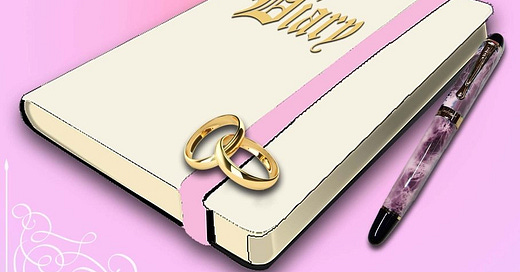The Lord God said, “It is not good for man to be alone. I will make a helper(ezer) suitable (kenegdo) for him.” Genesis 2:18
March 3, 2000, 9AM
When Bonnie and I arrive at the hospital, we are still exhausted from the long night before, but propping each other up. The nurse I spoke with at 6AM told me that Ron had had a quiet night. My own sleep was punctuated by the cacophony of crashing metal and squealing brakes, an auditory reminder of my husband’s serious car accident. Later, I’d called various schools and reported absences, receiving murmurs of sympathy. We haven’t brought Allen with us this time; I want to be able to prepare him for the condition of his father. Last night in the trauma recovery room, Ron had been as still and gray as a waxed image.
My daughter and I hold hands and paste smiles onto our faces as walk down the halls of a hospital that is already too familiar, too overwhelming. We enter the ICU on tiptoe, loathe to disturb the silence broken only by the whirr of medical machines. Ron lies on a raised bed behind a blue curtain, his arms tied down with tubes and straps. The ventilator makes his chest rise and fall and emits the sound of wooshing air. I touch his hand. He stirs. Eyelids flicker. On the other side of the bed, Bonnie rests her hand on her father’s shoulder. He shudders, as he does sometimes in a bad dream.
We wait. We have been told by the surgeon who pieced together Ron’s broken body last night that his condition is serious, but his chances of recovery are good. Four weeks, Dr Huffman estimated, until he would be well enough to leave.
We believed her.
The word “helpmeet” in the Book of Genesis is frequently read as “helpmate”, but both words in modern times have a demeaning connotation, implying that the Woman—Eve—formed from the rib of Man—Adam—was less than he, a sort of second-class human being.
Nothing could be further from the truth.
In Genesis 2:18, Eve is described in Hebrew as “ezer kenegdo”, difficult to translate because it’s two words. “Kenegdo” is pretty simple. It means “opposite, or alongside”; woman is equal to man, just different. “Ezer” is a bit harder. It is used 21 times in the Old Testament and according to Strong’s Concordance, means “to rescue, to save.” Ezer denotes strength.
Rather than being a mere “helper” to man, woman is to be his strength and his rescuer.
But I didn’t know this as a 21-year old bride, my handsome husband beside me, our lives before us. I didn’t know that the years after our marriage would cause me to grow in both strength and endurance, that the four weeks predicted by Dr. Huffman would become ten months, and then seep into nineteen years of continued rescuing from both physical and mental issues. I didn’t know the power that would become mine as I became both mother and father to my children, financial supporter of our family, and caregiver to Ron.
I grew into the role of ezer kenegdo. I pray that I did it well.
And on this, the anniversary of those long-ago vows we made to one another, I want to tell my dear Ron that, given the choice, I would gladly do it all again.
In the words of Ronnie Milsap, “I wouldn’t have missed it for the world.”
Despite the difficulty of so many years, I would still be caring for Ron if he was here. What is something that you would still be doing if given the choice?
I’d like to ask a favor. If you found this post helpful or inspirational, would you please share it on your own social media or with a friend? It’s one way that an independent Substack writer can grow her readership!





